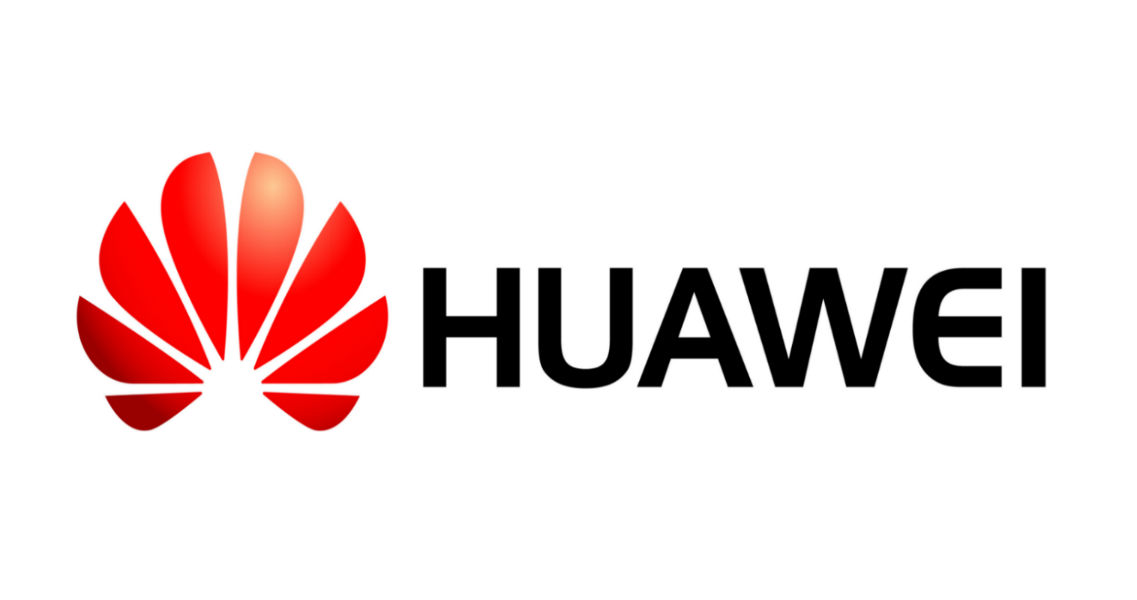In today’s digital age, streaming and entertainment have become an integral part of our lives. With the rise of cord-cutting and the increasing number of streaming services available, it can be overwhelming to keep track of all your favorite shows and movies. That’s where media servers like Emby and Plex come in. These powerful tools allow you to organize and stream your media content from one central location, making it easier than ever to enjoy your favorite entertainment.
But which media server is right for you? In this article, we will compare Emby and Plex in terms of their features, pricing, user interface, installation and setup, and more. By the end, you’ll have a clear understanding of the strengths and weaknesses of each platform, helping you make an informed decision.
Overview of Emby and Plex
Before we dive into the details, let’s start with a brief overview of Emby and Plex. Both Emby and Plex are media server solutions that provide a client-server model for streaming media content to various devices. They offer features like media organization, metadata gathering, multi-user access, parental controls, and compatibility with a wide range of devices.
Emby was originally a fork of the XBMC media player and was later renamed Emby in 2015. Plex, on the other hand, started as a freeware media center application project in 2007 and has since become one of the largest streaming media platforms in the market.
While both Emby and Plex share many similarities, there are some key differences that set them apart. Let’s explore these differences in more detail.
Features Comparison: Emby vs Plex
One of the most important factors to consider when choosing a media server is the range of features it offers. Emby and Plex both have robust feature sets, but they differ in certain aspects.
Live TV Support
Both Emby and Plex provide live TV support, allowing you to stream live TV channels to your devices. However, the availability and functionality of live TV support may vary.
Plex offers access to over 300 free live TV channels in its free version. With a Plex Pass subscription, you can unlock additional features like DVR, pause/search, channel and program guide, and Chromecast support. On the other hand, Emby requires a paid Emby Premiere pass or a TV tuner and antenna to access live TV support. Emby Premiere allows you to stream live TV to any device, access your DVR, and manage your library of recordings.
Verdict: If live TV is a priority for you, Plex offers a more accessible option with its free live TV channels. However, if you’re willing to invest in a paid pass, Emby provides more comprehensive live TV features.
Media Organization and Metadata Gathering
Both Emby and Plex excel in organizing and gathering metadata for your media content. They automatically scan your media folders and files, download metadata, and create visually appealing menus for easy navigation.
Plex has a strong reputation for being more scalable in handling large media collections. It offers extensive support for organizing and managing media libraries, including the ability to customize artwork and metadata. Emby, on the other hand, is known for its customization options, allowing you to tailor the organization of your media libraries to suit your preferences. However, Emby may not be as reliable for handling large libraries compared to Plex.
Verdict: If you have a large media collection and prefer a scalable solution, Plex is the better choice. However, if customization is a priority for you, Emby offers more flexibility in organizing your media libraries.
Multi-User Access and Parental Controls
Both Emby and Plex allow multiple users to access the media server with their own profiles and access rights. However, they differ in terms of the number of supported devices and the level of user management.
Emby’s Premiere pass has a limit of 25 supported devices. It allows you to manage multiple users with their own profiles and access permissions. Plex, on the other hand, offers Plex Home, which allows you to manage up to 14 users in total with a free Plex account. With a Plex Pass subscription, you can expand the number of users and have more granular control over user management.
Both Emby and Plex offer parental controls, but they take different approaches. Plex provides Plex Restriction Profiles and Online Media Controls to restrict access to certain content. Emby offers customization options based on ratings, tags, and access schedules for more fine-grained control.
Verdict: If you have a large number of devices and need extensive user management, Emby’s Premiere pass is a better option. If you have a smaller number of users and prefer a more straightforward approach to parental controls, Plex’s Plex Home is a good choice.
Plugins and Add-ons
Plugins and add-ons can enhance the functionality of your media server by providing additional features and customization options. Both Emby and Plex support plugins and add-ons, but there are some important differences to consider.
Plex offers limited support for third-party plugins, and it has announced that plugin support will be removed in the near future. Installing plugins on Plex requires manual setup by copying or moving the plugin bundle into the appropriate folder.
On the other hand, Emby has a plugin catalog that makes it easy to install plugins directly from the interface. It offers a wider selection of plugins and add-ons compared to Plex. Emby’s plugins are categorized into Channels, Content Providers, Live TV, Metadata, Notifications, and Social Integration, providing a streamlined installation process.
Verdict: If you’re interested in exploring a variety of plugins and add-ons, Emby’s plugin catalog offers a better user experience. However, if plugin support is not a priority for you, Plex’s more limited selection may still meet your needs.
Compatible Devices
The compatibility of a media server with different devices is crucial for seamless streaming across various platforms. Both Emby and Plex support a wide range of devices, but there are some differences to consider.
Plex is known for its extensive compatibility, with support for streaming players like Apple TV, Chromecast, Amazon Fire TV, Google TV & Android TV, Roku, smart TVs, Portal (from Facebook), mobile devices (Android and iOS), computers (Windows, macOS, web app, and Plex Media Player), gaming consoles (NVIDIA Shield, PlayStation, and Xbox), and home accessories (Amazon Alexa, Caavo, and Sonos). It also supports virtual reality devices like Oculus Go, Samsung Gear VR, Google Daydream, and Lenovo Mirage Solo VR.
Emby is available for Android TV, Amazon Fire TV, Chromecast, Roku, Xbox, home theater computers, and more. It also has mobile apps for Android, iPhone, iPad, Windows Phone, and Windows Tablets. Emby’s web app is accessible from smartphones, computers, tablets, and big screens with an updated web browser.
Verdict: Plex offers a wider variety of compatible client/server devices, making it a more versatile choice for streaming media content.
Transcoding
Transcoding is the process of converting media files into a compatible format for different devices. Both Emby and Plex offer transcoding capabilities, but they differ in terms of customization and control.
Plex allows you to limit simultaneous transcoding sessions, control the maximum speed of individual playback streams, and adjust the quality of transcoded media. It also offers hardware acceleration for faster transcoding performance.
Emby provides extensive transcoding customization options, allowing you to adjust quality, speed, H.264 preset, threading, and advanced settings. Like Plex, Emby also supports hardware acceleration. Emby is known for its faster load time, while Plex allows skipping forward without a pre-buffered file.
Verdict: Emby offers more customization options for transcoding, making it a preferred choice for users who want fine-grained control over the transcoding process. Plex, on the other hand, offers more control over simultaneous transcoding sessions and remote streaming.
Pricing: Emby vs Plex
Both Emby and Plex offer free basic functionality, allowing you to get started without any upfront costs. However, they also have paid tiers with additional features and benefits.
Emby’s free version provides access to most of its core features, including media organization, streaming, and user management. Emby Premiere, the paid tier, offers advanced features like live TV support, DVR, mobile sync, cinema mode, and cloud syncing. The Emby Premiere pass costs $4.99 per month or $54 for a yearly subscription. Emby also offers a lifetime subscription for a one-time payment of $119.
Plex’s free version includes basic features like media organization, streaming, and limited live TV support. The Plex Pass subscription unlocks additional features like DVR, mobile sync, trailers and extras, and offline sync. The Plex Pass subscription costs $4.99 per month, $39.99 for a yearly subscription, or $119.99 for a lifetime subscription.
Verdict: Both Emby and Plex offer similar pricing options, with Emby’s yearly subscription being slightly more expensive. If you prefer a lifetime subscription, Emby offers a slightly higher one-time payment compared to Plex.
User Interface: Emby vs Plex
The user interface is an important aspect of any media server, as it affects how you interact with your media content. Emby and Plex have different approaches to the user interface, offering unique experiences.
Plex boasts a streamlined and polished interface that is easy to navigate and visually appealing. Its GUI is known for its user-friendly design and self-intuitive features. Plex’s interface provides all the essential playback controls, robust library management features, and quick and easy search capabilities. It also offers customization options like adding or removing libraries, customizing artwork and metadata, and creating a watchlist queue.
Emby, on the other hand, offers a more customizable interface that allows you to tweak the layout and appearance of the dashboard to your liking. While Emby’s GUI may look slightly more outdated compared to Plex, it provides high customizability. Emby’s interface features playback controls, library management capabilities, and powerful search capabilities. It also offers Emby Theatre, a free media center application for Windows, which provides a personalized home screen and various ways to explore your media libraries.
Verdict: Plex’s streamlined and polished GUI makes it a user-friendly option for those who prefer a straightforward interface. Emby’s interface, while slightly less polished, offers more customization options for users who want to personalize their media libraries.
Installation and Setup: Emby vs Plex
The installation and setup process of a media server can greatly impact your overall experience. Emby and Plex have different installation procedures, but both are relatively straightforward.
To install Emby Server, you can head to the Emby website and download the appropriate installer for your operating system. The installation process will guide you through setting up a display language, creating an initial user account, adding media libraries, configuring metadata settings, and setting up remote access if desired. Once the setup is complete, you can explore the Emby Server Dashboard and start enjoying your media content.
Plex Media Server can be installed on various platforms and devices. You can download the Plex Media Server installer from the Plex website and follow the installation instructions for your specific platform. The installation process may vary depending on the platform, but it typically involves preparing your media collection, organizing it, and configuring the Plex Media Server to recognize your media files. Once installed, you can access the Plex Media Server dashboard to manage your libraries and settings.
Verdict: Both Emby and Plex offer straightforward installation and setup processes, allowing you to get started quickly and easily.
Frequently Asked Questions
Are Emby and Plex legal?
Yes, both Emby and Plex are entirely legal platforms. However, how you use them to stream content is up to your discretion. If you have a collection of legally obtained media content, both Emby and Plex can serve as content aggregators, making it easier to access and organize your media libraries. However, if you use Emby or Plex to stream illegally obtained content, it is important to note that neither platform condones or supports piracy.
Can Emby and Plex be accessed remotely?
Yes, both Emby and Plex allow remote access to your media content. You can access your Emby or Plex server from outside your home network as long as you have an internet connection. Emby offers Emby Connect, which allows you to easily access your server remotely. Plex offers Plex Remote Access, which allows you to securely connect to your server from anywhere. Both platforms provide options for remote access setup and configuration within their respective interfaces.
Can Emby and Plex be used without an internet connection?
Yes, Emby and Plex can be used without an internet connection if you are accessing content within your local network. However, certain features like remote access, cloud syncing, and online metadata retrieval may require an internet connection. It is also important to note that some devices may have limitations on offline playback. For example, Plex requires a Plex Pass subscription for offline syncing.
Final Verdict
In the Emby vs Plex battle, both media servers offer powerful features and functionality for organizing and streaming your media content. The choice between Emby and Plex ultimately depends on your specific needs and preferences.
If you prioritize a user-friendly interface, easy installation, and a wide range of compatible devices, Plex may be the better choice for you. Plex’s polished GUI, extensive device compatibility, and robust feature set make it a popular option among users.
On the other hand, if you value customization, fine-grained control over transcoding, and a more personalized media library, Emby may be the right choice. Emby’s customizable interface, transcoding customization options, and plugin catalog provide a high level of flexibility for advanced users.
Ultimately, both Emby and Plex offer comprehensive media server solutions that can enhance your streaming experience. Whether you choose Emby or Plex, you can enjoy a centralized and organized media library that brings all your favorite entertainment together in one place.
Remember to consider your specific needs, budget, and device compatibility when making your decision. Whichever media server you choose, you’ll be one step closer to creating your own personalized streaming experience.








